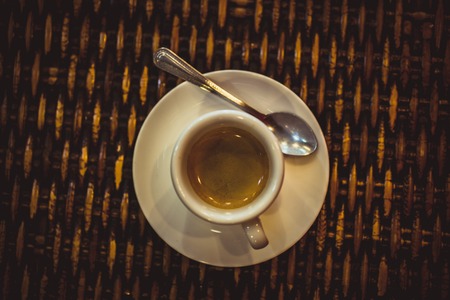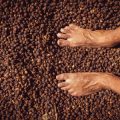1. Introduction to Ayurveda and the Three Doshas
Ayurveda, a time-honoured system of holistic medicine that originated in India more than 5,000 years ago, continues to influence the health and wellness practices of millions across the subcontinent. Rooted in the Sanskrit words “Ayur” (life) and “Veda” (knowledge), Ayurveda is truly the science of life, offering deep insights into maintaining harmony between body, mind, and spirit. Central to this ancient wisdom are the three doshas: Vata, Pitta, and Kapha. These doshas represent unique combinations of the five elements—earth, water, fire, air, and ether—and define one’s prakriti or individual constitution. Each person carries a distinct balance of these energies, influencing everything from physical characteristics to mental tendencies and even food preferences. Understanding how daily choices—including coffee consumption—affect your doshic balance is essential for sustaining health and inner harmony in accordance with Ayurvedic principles.
2. Coffee According to Ayurveda
When we look at coffee through the lens of Ayurveda, it’s important to understand both its inherent qualities and its current role in Indian society. Traditionally, Ayurveda classifies substances based on their taste (rasa), potency (virya), post-digestive effect (vipaka), and energetic qualities (guna). Coffee is generally considered heating (ushna) and stimulating (rajasik) in nature. Its bitter taste can help stimulate digestion, but its strong, pungent after-effect tends to increase heat and excitement within the body and mind.
Coffee’s Ayurvedic Attributes
| Ayurvedic Attribute | Coffee’s Quality |
|---|---|
| Taste (Rasa) | Bitter, Astringent |
| Potency (Virya) | Heating |
| Post-digestive Effect (Vipaka) | Pungent |
| Energy (Guna) | Light, Dry, Stimulating |
Coffee in Modern Indian Lifestyle
Coffee has become incredibly popular across urban India, from South Indian filter coffee houses to trendy cafes in Delhi and Mumbai. For many young professionals and college students, a cup of coffee is part of their daily routine—especially during long work hours or exam preparations. In fact, coffee culture now stands alongside traditional chai breaks as a symbol of modernity and productivity.
Ayurveda vs. Contemporary Trends
While Ayurveda recommends moderation and balance according to one’s dosha type, the contemporary Indian lifestyle often encourages frequent consumption of coffee for its energising effects. However, from an Ayurvedic perspective, this stimulating beverage may not suit everyone equally—especially when consumed in excess or without consideration for individual constitution.
![]()
3. Effects of Coffee on Vata Dosha
In Ayurveda, Vata dosha is associated with the elements of air and ether, embodying qualities such as dryness, lightness, coolness, and a tendency towards restlessness. People with predominant Vata often experience quick thinking, creativity, but also may suffer from irregular routines, anxiety, dry skin, and digestive issues like bloating. When considering the effects of coffee on Vata types, it’s important to recognise that coffee itself is light, dry, stimulating, and slightly bitter—traits that can aggravate Vata if not consumed mindfully.
For example, imagine starting your day in Mumbai’s fast-paced environment—a typical Vata scenario. Many young professionals reach for a hot cup of coffee before braving the city’s traffic or catching an early morning local train. While that steaming cup may bring a burst of energy and alertness, it can also amplify the natural restlessness of Vata. The caffeine content accelerates the mind’s pace, making one prone to overthinking or feeling scattered during important meetings or while handling multiple family duties at home.
Furthermore, coffee’s diuretic nature can increase dryness within the body—already a primary characteristic of Vata. This could manifest as dry skin or chapped lips during Delhi’s winter months or even as constipation when drinking multiple cups without adequate hydration. Traditional Indian snacks like khakra or roasted chana are often enjoyed with coffee during evening chai breaks at work. However, these combinations may further increase dryness if not balanced by moist foods like fresh fruit or a little ghee in your meal.
If you are someone whose hands get cold easily in Bengaluru’s mild evenings or who feels anxious before exams or presentations, too much coffee might tip your delicate internal balance. Ayurvedic wisdom suggests that those with high Vata should favour warm, grounding beverages—like spiced milk or herbal teas with ginger and cardamom—instead of reaching for extra cups of filter coffee during stressful days.
Overall, understanding how coffee interacts with Vata traits helps individuals make better choices based on their unique constitution and daily routines common in Indian culture.
4. Effects of Coffee on Pitta Dosha
When discussing the impact of coffee on Ayurveda’s Pitta dosha, it is essential to understand both the nature of Pitta and the attributes of coffee. Pitta is characterized by fire and water elements, making it naturally hot, sharp, and intense. Coffee, with its inherent heating qualities and stimulating properties, has a direct effect on Pitta balance, especially in the context of Indian climate and dietary habits.
Coffee’s stimulating effect tends to increase internal heat, which can aggravate Pitta individuals or anyone living in hot and humid regions like much of India. When consumed regularly, coffee may provoke symptoms such as acidity, heartburn, irritability, and excessive sweating—common issues among those with a dominant Pitta constitution. These effects are further amplified when paired with spicy Indian foods or during peak summer months.
| Factor | Pitta Nature | Coffee Influence |
|---|---|---|
| Elemental Quality | Hot & Sharp | Increases heat further |
| Digestive Effect | Strong digestion (Agni) | Can cause hyperacidity |
| Mental State | Focused, intense | Provokes irritability & restlessness |
| Climate Sensitivity | Affected by heat/humidity | Worsens in Indian summer conditions |
| Dietary Compatibility | Tolerates cooling foods best | Heats up system; not ideal with spicy foods |
In typical Indian diets—rich in spices like chilli powder, black pepper, and garam masala—the addition of coffee can push Pitta into imbalance more quickly. This often manifests as burning sensations in the stomach or chest (known locally as “pet mein jalan”), headaches, or mood swings. Especially for South Indians who enjoy their filter coffee daily in already warm climates, moderation becomes key to avoid excess heat accumulation.
If you have a Pitta constitution or experience symptoms such as frequent acidity or skin eruptions after drinking coffee, Ayurveda recommends choosing cooling alternatives like coconut water or herbal infusions (for example, coriander seed tea) instead. Alternatively, enjoy your coffee with milk to reduce its heating effect and always pair it with cooling foods like cucumber raita or sabja seeds.
5. Effects of Coffee on Kapha Dosha
In Ayurveda, Kapha dosha is associated with qualities like heaviness, stability, and calmness. When Kapha becomes imbalanced, it can manifest as lethargy, sluggishness, and a lack of motivation—symptoms that many Indians might describe as “feeling lazy” or “slow-moving.” Coffee, with its stimulating properties, is considered to have a heating and drying effect, which can counteract some of the heavy and moist qualities of Kapha.
Traditionally in Indian households, beverages such as masala chai or warm water are common morning rituals to awaken the senses and get the body moving. However, over recent years, coffee has gained popularity as a morning drink, especially among young professionals in cities like Bengaluru, Mumbai, and Delhi. For individuals with predominant Kapha constitution or those experiencing Kapha imbalance—especially during cold or damp weather—moderate coffee consumption can help alleviate feelings of drowsiness and inertia by providing an energizing kick-start to the day.
However, Ayurveda advises caution. While coffee may temporarily balance Kapha by reducing sluggishness and promoting alertness, overconsumption can lead to further imbalances. It may provoke anxiety or restlessness if taken in excess or combined with other stimulants. Therefore, it is recommended to enjoy coffee in moderation and ideally not on an empty stomach. Adding warming spices like cinnamon or cardamom—a common practice in South Indian filter coffee—can also help harmonize its effects for Kapha types.
Ultimately, understanding your unique prakriti (constitution) and current state of balance is essential before incorporating coffee into your daily routine. If you tend towards high Kapha symptoms such as weight gain, congestion, or low energy in the mornings, a cup of freshly brewed Indian-style coffee can be beneficial when consumed mindfully as part of your morning ritual. As always in Ayurveda: balance is key.
6. Tips for Balancing Doshas When Drinking Coffee
Coffee may be a modern staple in many Indian households and offices, but its impact on the doshas—Vata, Pitta, and Kapha—can vary based on how and when it is consumed. Here are some practical, locally inspired tips to help you enjoy your daily cup without disturbing your Ayurvedic balance.
For Vata Dosha
Vata types tend to be dry, cool, and light, so coffee’s stimulating and drying qualities can easily aggravate them. To counter this:
- Add a pinch of cardamom or a drop of ghee to your coffee. Cardamom is commonly used in Indian chai and helps neutralise acidity, while ghee adds grounding qualities.
- Drink coffee warm (not iced) and avoid drinking it on an empty stomach.
- Limit intake to late morning, when Vata is naturally lower in the body’s daily cycle.
For Pitta Dosha
Pitta individuals are fiery by nature—sharp, intense, and often prone to overheating. Since coffee can increase heat and irritability:
- Opt for cold-brew or iced coffee if you must drink it, as cooling beverages are better suited for Pittas in India’s hot climate.
- Add cooling spices like fennel or a dash of coconut milk to your brew.
- Avoid drinking coffee during the peak heat hours (10 am to 2 pm), choosing early morning or late afternoon instead.
For Kapha Dosha
Kapha types are steady, calm, and sometimes sluggish. Coffee’s stimulating effect can actually benefit Kapha if used wisely:
- Add warming spices such as cinnamon or ginger—both widely available in Indian kitchens—to enhance metabolism and reduce heaviness.
- Drink black coffee without sugar or cream in the morning for a natural energy boost.
- Avoid drinking coffee late in the evening or at night, as it may disturb sleep and digestion.
General Tips Rooted in Indian Culture
- Choose freshly ground beans over instant coffee for prana-rich energy.
- Savour your coffee mindfully, perhaps alongside a small bowl of poha or upma for grounding.
- If you practice yoga or pranayama, wait until after these practices before having coffee so as not to disrupt your internal balance.
By making these simple adjustments rooted in Ayurveda and local Indian traditions, you can enjoy your filter kaapi or espresso while keeping your doshas in harmony.
7. Conclusion: Mindful Coffee Consumption in Indian Context
In the journey to answer whether coffee imbalances Vata, Pitta, or Kapha in Ayurveda, we have explored how this popular beverage interacts with each dosha and why its effects can vary from person to person. The key takeaway for Indian readers is to approach coffee not just as a global trend but through the lens of Ayurvedic wisdom, which encourages us to honour our unique constitution (prakriti) and local traditions. Practicing mindful consumption means being aware of the quantity, timing, and method of preparation—such as preferring freshly brewed filter coffee over instant varieties—and pairing it with balancing foods like milk or spices common in Indian households (like cardamom or cinnamon). Remember that moderation is vital: excessive intake may aggravate Vata or Pitta, while a warm cup in moderation may benefit Kapha types. Let your body’s signals guide you, respecting your family’s heritage and India’s diverse coffee culture. In essence, let Ayurveda inspire a thoughtful, balanced relationship with coffee—one that supports your health and celebrates both tradition and individual needs.


